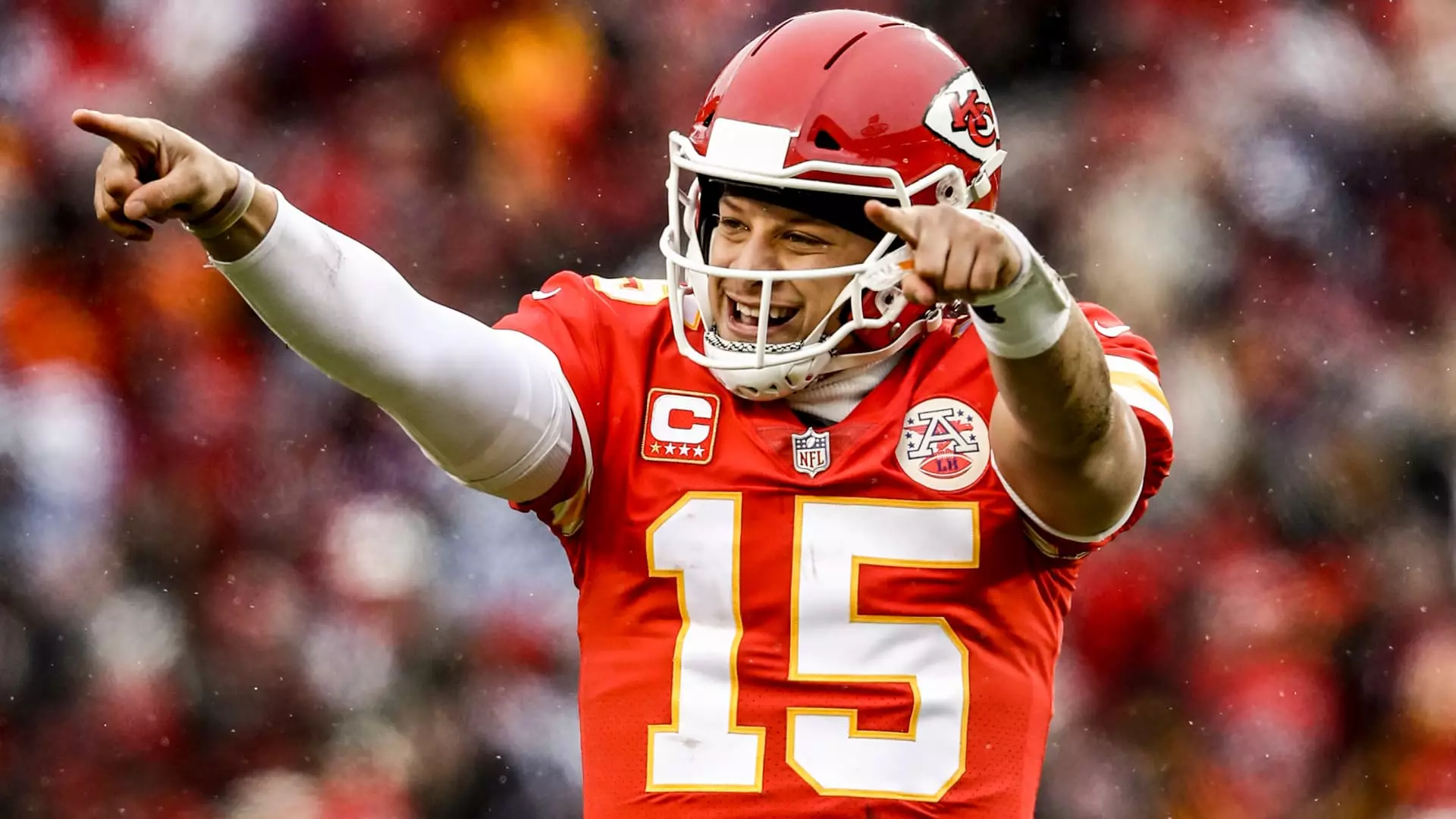Patrick Mahomes, celebrated as a three-time Super Bowl champion and one of the NFL’s brightest stars, is now positioning himself as a multi-dimensional entrepreneur. His recent investment in Throne Sport Coffee signifies more than a casual hobby—it embodies the modern athlete’s push to diversify and build a brand beyond sports. Yet, this transition reveals a subtle yet dangerous narrative: athletes are increasingly viewed not solely as sports figures, but as lifestyle icons and business magnates. While this may seem advantageous, it often glosses over the real complexities and vulnerabilities that athletes like Mahomes face in their post-sports careers.
The ascent into entrepreneurship can be alluring, promising financial security and longevity in the limelight. Mahomes’ endorsement of healthier coffee options profits from his image—youthful, dynamic, health-conscious—and his role as a brand ambassador lends credibility to Throne Sport Coffee. However, this strategic move, cloaked as personal passion, might merely be a reflection of the modern sports economy’s obsession with commodification. How much of Mahomes’ enthusiasm is genuine, and how much is driven by market pressures? This blurred line exposes a troubling dependence on personal branding, often at the expense of authentic interests.
Superstar as a Corporate Player: Risks of Overextension
Mahomes’ expanding portfolio—stakes in baseball, soccer, Formula 1—are indicative of a broader trend among athletes turning into entrepreneurs. The appeal is undeniable: more control, wealth preservation, and enduring fame. Nonetheless, this diversification invites significant risks. The assumption that a football star can seamlessly transition into a savvy investor neglects the intricacies and unpredictability of business, especially in saturated markets like ready-to-drink coffee. Throne’s entry into a fiercely competitive sector, dominated by giants like Starbucks, underscores the precarious nature of such endeavors. Promoting a healthier, lower-sugar coffee might be a noble goal, but does it translate into commercial viability or merely serve Mahomes’ personal image?
Moreover, his donations to sports franchises—like the Kansas City Royals and MLS teams—mesh well with his vision of community and unity. Yet they also tether his wealth to the volatile world of sports management. As we’ve seen with multi-sport billionaires, diversification without solid strategic planning can lead to overextension, leaving athletes vulnerable to economic downturns or shifts in public sentiment. Mahomes’ investments may seem like smart bets now, but their success hinges on fluctuating consumer preferences, team performance, and the fickle nature of fame.
The Illusion of the Self-Made Hero
What’s particularly problematic with Mahomes’ public persona is the conflation of athletic excellence with near-mythic entrepreneurial mastery. It creates a perception that success is primarily about individual grit and savvy—an inspiring narrative that diminishes the systemic issues athletes face during and after their careers.
In reality, Mahomes’ economic opportunities are rooted in a unique confluence of talent, privilege, and media infrastructure. His position at the top of the NFL comes with unparalleled access—not just to fame but to marketing machinery that elevates his brand into multiple industries. While he publicly expresses a love for sports and community, it’s vital to recognize that his influence and financial leverage are not universally accessible.
This manufactured image conveniently deflects attention from the broader challenges within the NFL and sports industry: the health risks, the short average career span, and the socioeconomic disparities that persist among players. Instead, Mahomes’ entrepreneurial endeavors paint a picture of self-made success, overshadowing the structural issues inherent in professional sports economies.
Stadium Politics and Cultural Capital: The Hidden Challenges
In his discussion of stadium renovations and future planning for Arrowhead, Mahomes hints at the underlying tension within Kansas City’s sports infrastructure. While he praises the stadium’s history and the loyal fanbase, his comments also expose the often-overlooked political and economic struggles associated with large-scale sports projects. The decision to renovate or replace aged stadiums involves complex negotiations, public funding battles, and community displacement concerns—all of which Mahomes seems to acknowledge in passing but does not deeply engage with.
He personalizes the stadium debate, emphasizing nostalgia and fan loyalty, but the reality is that these decisions are influenced more by city politics and economic interests than athletic sentiment. Mahomes’ influence could sway public opinion, yet the deeper implications—such as gentrification or public debt—are left implicit. This highlights the problematic tendency of athletes to frame infrastructural debates through a sentimental lens, masking the less glamorous realities of urban development and fiscal responsibility.
Safety and the Future of the NFL: The Hidden Tensions
Mahomes’ cautious stance on an 18-game season and international expansion reveals a pragmatic, if somewhat naïve, concern about player welfare and league sustainability. While he rightly advocates for additional bye weeks to mitigate injury risk, it underscores a deeper tension within the league: the relentless pursuit of growth versus the fundamental safety of its players.
The push for more games and a world beyond American borders suggests an obsession with global expansion and revenue, often at odds with athlete health—the very core of the sport’s future. Mahomes’ position, while centrist and measured, still fails to grapple with the systemic issues that persist: chronic injuries, mental health challenges, and the economic disparities among players. His voice, though influential, becomes another name in a long line of players caught between business interests and physical well-being.
In the end, Mahomes’ perspectives reflect the paradox of modern star athletes: they are both beneficiaries and unwitting pawns in a machine that values spectacle over safety, profit over player welfare. His journey from Super Bowl hero to business mogul exposes a creature of the game now seeking to write his own narrative—perhaps at the expense of the deeper integrity of the sport he represents.

